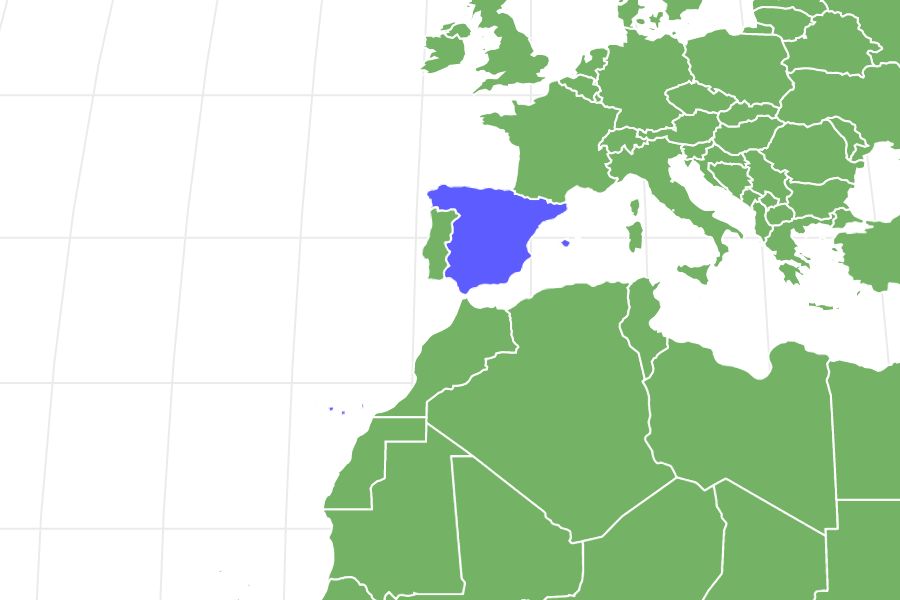Cockalier
Canis lupus
The Cockalier has very strong hunting ancestry.
Advertisement
Cockalier Scientific Classification
- Kingdom
- Animalia
- Phylum
- Chordata
- Class
- Mammalia
- Order
- Carnivora
- Family
- Canidae
- Genus
- Canis
- Scientific Name
- Canis lupus
Read our Complete Guide to Classification of Animals.
Cockalier Conservation Status
Cockalier Facts
- Name Of Young
- puppy
- Fun Fact
- The Cockalier has very strong hunting ancestry.
- Temperament
- Gentle, affectionate, and energetic
- Litter Size
- 3-6 puppies
Cockalier as a Pet:
- General Health
- Energy Level
- Shedability
- Trainability
- Intelligence
- Tendency to Chew
- Size
- Family and kid friendliness
- Yappiness / Barking
- Low
- Separation Anxiety
- Moderate
- Preferred Temperature
- Average climate
- Exercise Needs
- High
- Friendly With Other Dogs
- High
- Pure bred cost to own
- $1,000+
- Dog group
- Sporting
- Male weight
- - lbs
- Female weight
- - lbs
This post may contain affiliate links to our partners like Chewy, Amazon, and others. Purchasing through these helps us further the A-Z Animals mission to educate about the world's species.
View all of the Cockalier images!
One of the most interesting facts is that, because of its gentle and affectionate temperament, the Cockalier is a very capable therapy dog.
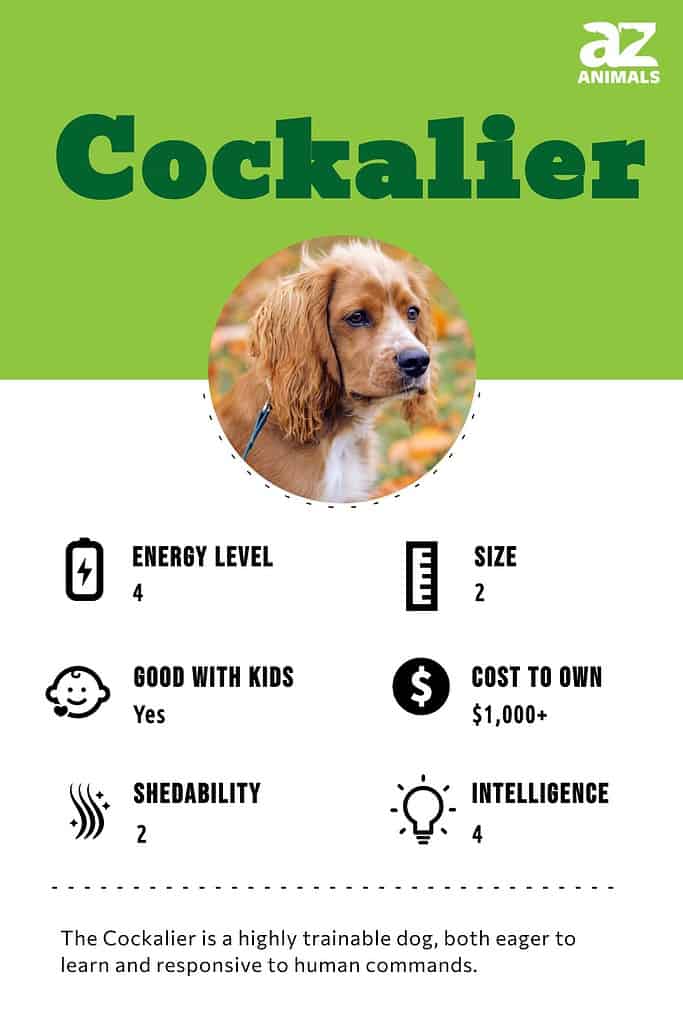
Origin
The Cockalier is a cross between a Cavalier King Charles Spaniel and a Cocker Spaniel. Both of its parents have a very similar heritage. The Cavalier King Charles Spaniel is a small toy dog with a smooth, silky coat; although a lap dog and companion, it does retain strong hunting instincts. The Cocker Spaniel (which comes in both American and English breeds) is a small dog, originally bred to hunt woodcock. This hunting instinct is reflected in the strong spaniel heritage.
See all of our expert product reviews.
The spaniel is a type of gun dog that flushes out the game from the dense brush so its owner can shoot it. There are many interesting facts about these types of dogs. They were supposedly imported from Spain, hence the name of spaniel, but many of them were later developed in France and England.
Like all mixed dogs, the Cockalier’s characteristics can vary a bit, but its two parent breeds are so similar that there shouldn’t be too much variance in the appearance and temperament of the offspring. Most of these dogs will have big, drooping ears, long, flowing hair, and expressive face. The long coat is usually some combination of black, brown, red, golden, and white. While it does still have a very strong prey drive, it is probably not well-suited as a hunting dog. This is a companion intended for the home.
3 pros and cons of owning a Cockalier
| Pros! | Cons! |
|---|---|
| Gentle and Affectionate: The Cockalier is a great companion. | Strong Prey Drive: The Cockalier still has a strong tendency to chase after other animals. |
| Easy to Train: This dog is obedient and eager to learn. | High Mental and Physical Needs: This dog may grow bored without enough activity. |
| Playful and Energetic: This dog loves to participate in high-energy games and activities. | Tendency to Gain Weight: Calorie intake should be limited. |
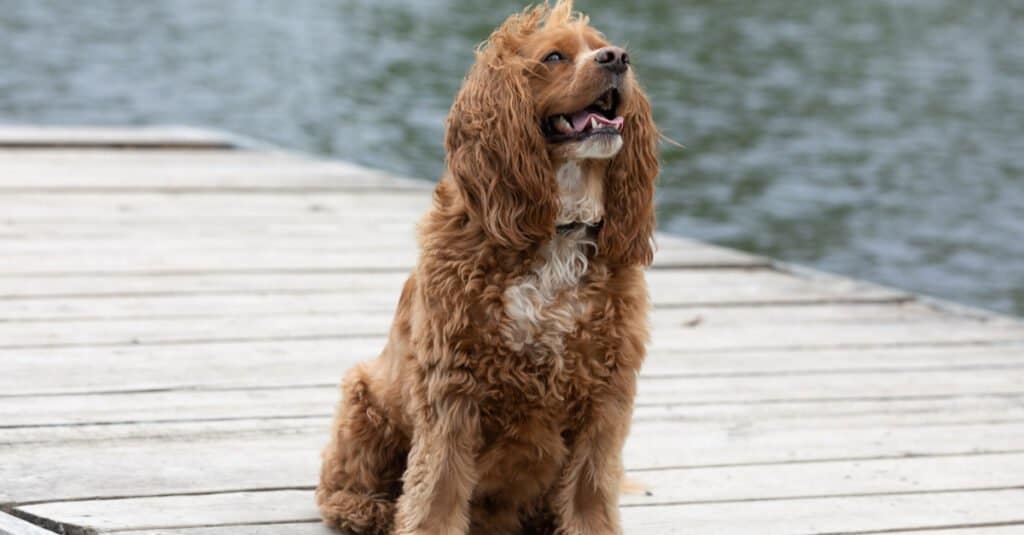
©Angela Holmyard/Shutterstock.com
Size and Weight
The Cockalier is a small dog with a fairly athletic body. It was built to run around and chase games. However, because there are no breed standards, its size can vary quite a bit more than usual.
| Weight (Male): | 10-28 pounds |
| Weight (Female): | 10-28 pounds |
| Height (Male): | 12-15 inches |
| Height (Male): | 12-15 inches |
Common Health Issues
As a mixed dog, the Cockalier tends to inherit any of the health problems from its two parent breeds. This can include progressive retinal atrophy, cataracts, cardiomyopathy (weakness of the heart muscles), syringomyelia (a fluid-filled cyst in the spinal cord), and hip dysplasia, in which the bone can become loose from the socket. Cancer is also a leading cause of death in both of its parent breeds. No matter where you’re buying from, you should make sure a thorough health screening has been done. Regular appointments at the vet are also crucial to catch problems early. Fortunately, with proper care and good breeding, this mix normally lives between 12 and 15 years old.
Health and Entertainment for your Cockalier
See all of our expert product reviews.
In summation, these are the most common health problems with the Cockalier:
- Cataracts
- Progressive retinal atrophy
- Cancer
- Hip dysplasia
- Cardiomyopathy
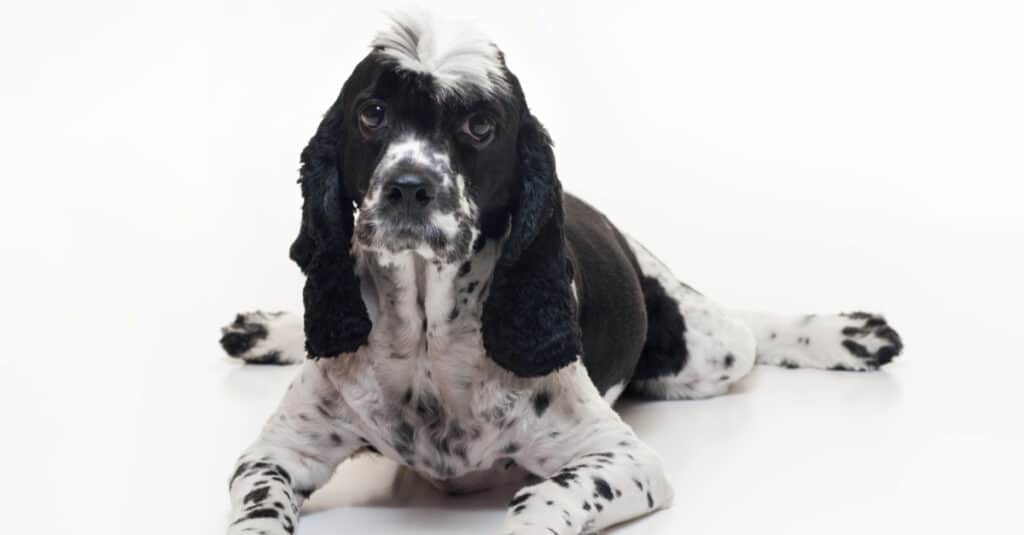
A highly active and energetic dog, the Cockalier is friendly and lovable as well.
©Katrina Elena/Shutterstock.com
Temperament
The Cockalier is a very friendly and lovable soul, equally playful and tender-hearted, who will fit easily into the family structure. They should get along well with everyone, including other dogs, but you should be careful about introducing other animals like a cat into the home unless the dog has been raised with it from an early age. As a highly active and energetic dog, the Cockalier will need plenty of mental and physical stimulation throughout the day. If it’s left alone for too long without anything to do, then it could resort to destructive behavior. It should also adapt well to apartment living, provided it receives enough exercise every day.
How to Take Care of the Cockalier
The Cockalier is a medium-maintenance dog, good for inexperienced owners. Grooming, feeding, and training should be straightforward, but exercise and socialization will require more time and effort. Fortunately, thanks to this dog’s gentle and good-natured temperament, much of its care routine should be hassle-free.
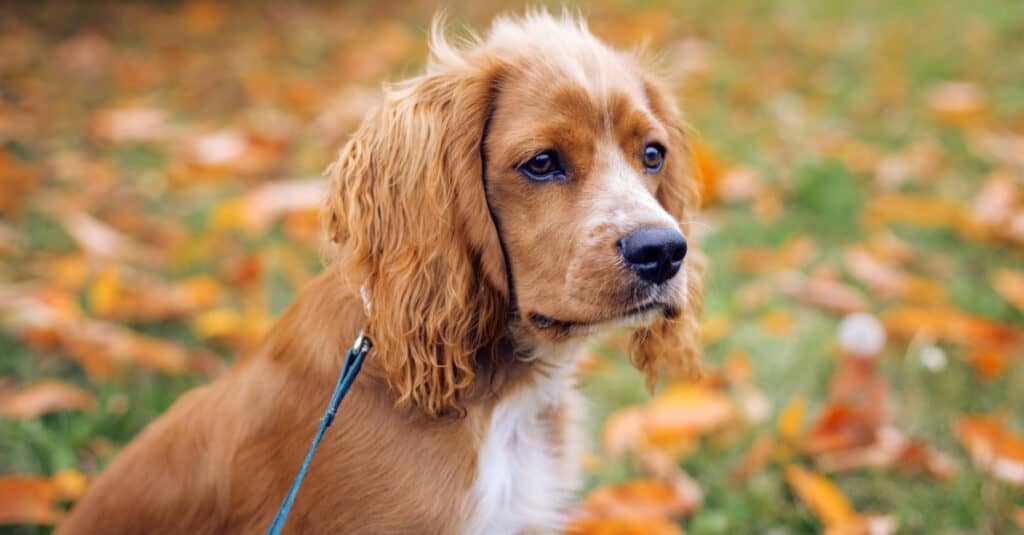
A Cockalier is a good dog breed for inexperienced owners.
©Angela Holmyard/Shutterstock.com
The Best Dog Food for Cockaliers
The Cockalier will need a high-quality diet with plenty of protein, healthy fats, and complex carbohydrates. Beef, chicken, and fish are all good sources of food. The exact amount should be consistent with its size and activity level. Carefully monitor its feeding intake and limit treats to prevent weight gain. Also, since cardiomyopathy is a potential concern for the Cockalier, you may want to consider a legume-free dog food that gets rid of legumes like peas and lentils that may be linked to heart failure in dogs.
So the A-Z Animals’ choice for the best Cockalier food is Stella & Chewy’s Wild Red Classic Kibble Dry Dog Food.
Since this dog food cuts out the grains and legumes in favor of ample protein from multiple high-quality meat sources like beef, pork, and lamb, your Cockalier can stay full and keep an ideal weight. There’s taurine for the eyes and heart, with vitamin A to further support vision, plus enough calcium for solid bone growth.
Stella and Chewy’s Wild Red Classic Kibble is available here on Chewy and Amazon.
- Red meat recipe contains beef, pork, lamb
- Contains sweet potato, potato, and dried kelp
- No grains, peas, legumes, artificial colors or preservatives
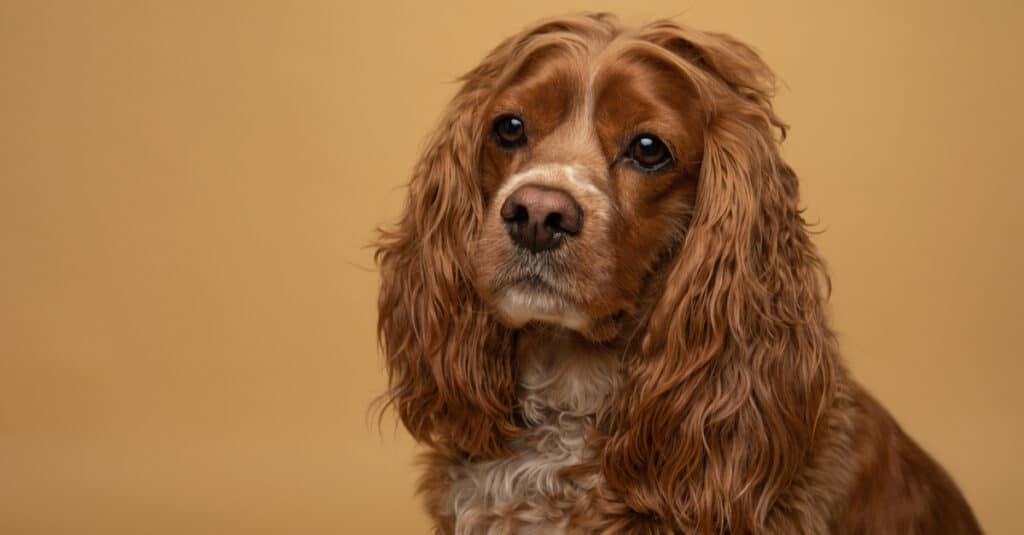
Though a light shedder, a Cockalier should be brushed a few times per week to look nice and clean.
©Angela Holmyard/Shutterstock.com
Maintenance and Grooming
As a light shedder, the Cockalier should be brushed a few times a week to remove loose hair and keep it looking nice and clean. It has no other special grooming requirements, but owners should never neglect other aspects of its care. You will need to trim the nails about once a month to prevent them from cracking and clicking on the floor; this can cause the dog pain and discomfort. Examine the ears regularly for signs of infections and clean them out accordingly. Finally, you can formulate a good oral care routine with the help of your vet to prevent gum and tooth disease.
Training
The Cockalier is a highly trainable dog, both eager to learn and responsive to human commands. Positive reinforcement methods can help a bit with motivation, but this dog should be an active and eager participant in its training.
Exercise
Because of its strong hunting heritage, the Cockalier may require more than an hour of exercise every day. Long walks will not be enough. This dog loves to run and chase after balls or discs. It’s also an eager participant in agility and hunting challenges and excels at swimming. A fenced yard is recommended so you can let it play without worrying about it wandering off. When it’s on the leash, a strong harness is also recommended to prevent injury in case your dog lunges at other animals.
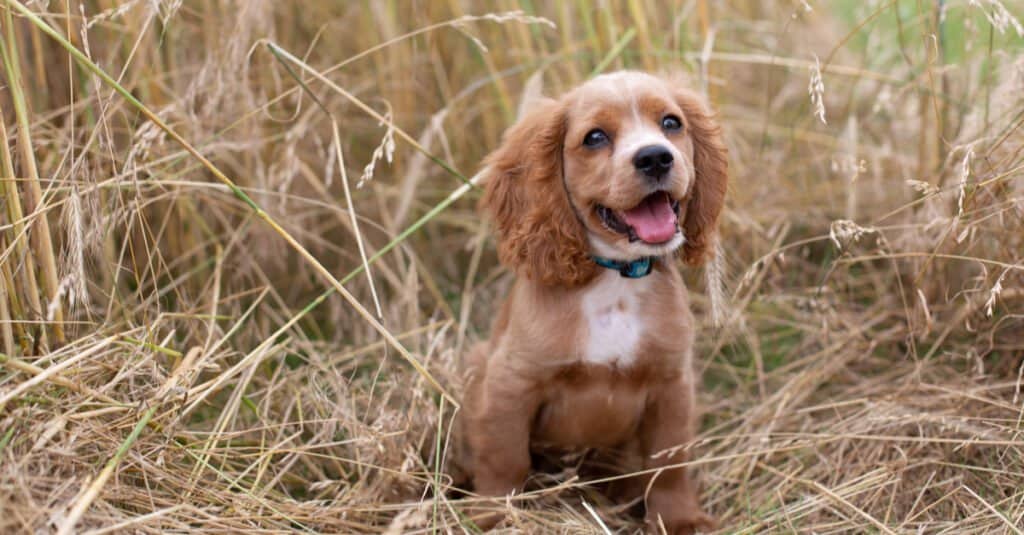
©Angela Holmyard/Shutterstock.com
Puppies
Like all dogs, Cockalier puppies will need to be socialized early and often to avoid shyness and temperament issues. Fortunately, because of its naturally friendly disposition, this isn’t too much of a concern. The larger problem is its strong prey drive. This can be discouraged somewhat with proper training and a strong focus on obeying commands, but some prey drive should be expected to remain. Classes, crate training, and daycare can all help improve overall behavior though. If you have any other questions about puppy issues, like microchipping and vaccines, then you should talk with your vet.
The Cockalier and Children
The Cockalier is a great match for households with children. Their gentle, friendly, and calm demeanor makes them a joy to interact with. The only thing to keep in mind is that children need to be taught how to interact with and handle smaller dogs. They can be a little sensitive and do not always enjoy rough play. Fortunately, the Cockalier is a fairly hardy and tough dog for its small size.
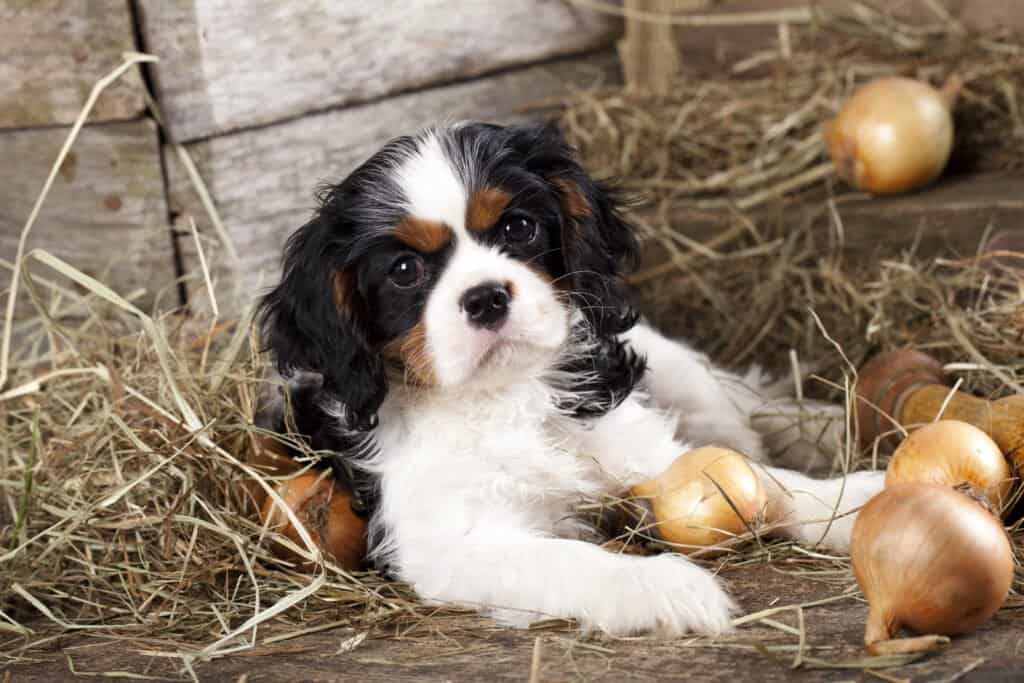
A King Charles Spaniel is a dog that is similar to the Cockalier because this breed is a cross between this type of dog and a cocker spaniel.
©Liliya Kulianionak/Shutterstock.com
Dogs Similar to the Cockalier
Besides its two parent breeds, the Cockalier is similar to other spaniel types.
- King Charles Spaniel: Also known as an English Toy Spaniel, this small toy dog, made famous by its association with English royalty, is a spunky, affectionate dog with a short, pug-like snout and long coat. While it does retain some hunting instincts, this breed is more suited as a lapdog than a hunting dog. The Cavalier and the King Charles were once the same breed.
- American Water Spaniel: Furnished in a curly double coat of liver brown or chocolate, the American Water Spaniel is a versatile hunting dog, skilled on both land and water, regardless of the terrain, and just as eager to retrieve game as a Golden Retriever. It’s also an excellent family dog that enjoys being at the center of attention.
- English Springer Spaniel: Intelligent, obedient, and eager to please, the English Springer Spaniel is a medium-sized dog with black/liver and white markings all around the body. This breed is split into separate working and show lines.
Famous Cockalier Dogs
As a relatively obscure mixed breed dog, there are unfortunately few famous examples of the Cockalier. Both of its parent breeds are incredibly popular though, and there are many interesting facts about their long history. The Cavalier King Charles Spaniel, for instance, was associated with the English monarch who bears its name.
Popular Names for the Cockalier
Here are several suggestions for good dog names:
- Charlie
- Bella
- Daisy
- Buddy
- Lady
- Luna
- Maggie
- Teddy
- Oliver
- Cooper
Cockalier FAQs (Frequently Asked Questions)
What is a Cockalier?
The Cockalier is a cross between a Cocker Spaniel and a Cavalier King Charles Spaniel. Playful, affectionate, and gentle, it’s a great family companion for everyone. The most common colors are black, brown, red, golden, and white.
How do I potty train a Cockalier?
Potty training is a matter of sticking to a consistent schedule that conforms to the dog’s natural behavior and body limitations. While all individual puppies are different, a good rule of thumb for the number of hours it can hold its bladder is the dog’s age in months. This should be considered an upper limit; ideally, it should be taken out much more often than this. Until it has full control, around nine to 10 months of age, normal training methods should work well. Reward your puppy with praise and treats when it has done a good job. Antagonistic methods probably won’t do anything except alienate your dog. Crate training and paper training (puppy pads) can help make the process much easier. Fortunately, this mix should be fairly easy to housetrain.
Is a Cockalier a good dog?
The Cockalier is remarkably well-behaved, gentle, even-tempered, and affectionate. Unless very poorly treated, this mix should have few behavioral issues at all.
Do Cockalier dogs shed?
Yes, this mix doe shed, but it’s fortunately quite manageable and easy to clean up. Brushing a few times a week should be sufficient.
Do Cockaliers bark a lot?
The Cockalier isn’t a big barker. While you should expect some vocalization when it becomes overly excited, it should thankfully spare you from the worst excesses of some noisy dogs.
How much do Cockaliers cost?
The price of a new puppy can vary significantly based on several factors, including the quality of the breeder and the pedigree of the dog. Expect to pay at least a thousand dollars for this mix. For competitive shows or sports dogs with excellent pedigrees, the price can easily reach $3,500. The price of feeding, toys, and other tools should be considered as well. If you are unable to afford the cost, then adoption is a great alternative. The price of adoption is usually just a few hundred dollars. This isn’t exactly an easy mix to find, but rescue dogs are sometimes available for potential owners. Some breed-specific rescues will take in mixes and pair them with a loving home. It’s a good idea to check out Cavalier King Charles or Cocker Spaniel rescues before turning to more general animal shelters.
What is the average lifespan of a Cockalier?
This mix has a normal lifespan of 12 to 15 years.
Thank you for reading! Have some feedback for us? Contact the AZ Animals editorial team.
Sources
- dogtime.com, Available here: https://dogtime.com/dog-breeds/cockalier#/slide/1
- Doggiedesigner, Available here: https://doggiedesigner.com/cockalier/
- American Kennel Club, Available here: https://www.akc.org/expert-advice/training/how-to-potty-train-a-puppy/

